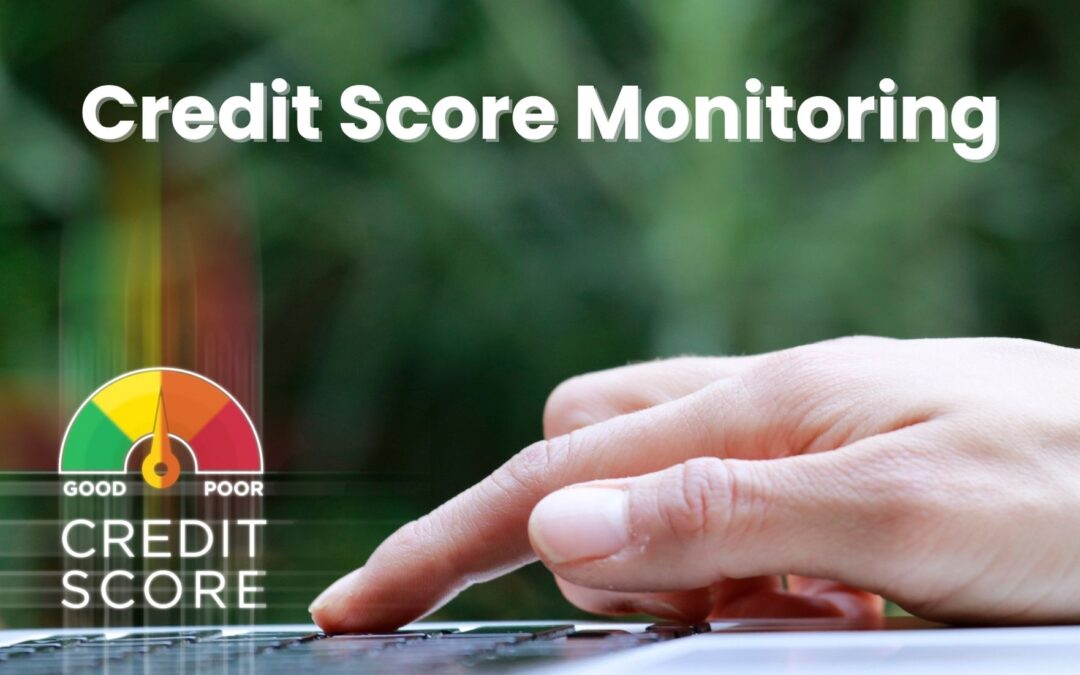In today’s financially driven world, Credit Score Monitoring is a critical aspect of managing your financial health. Your credit score plays a significant role in your ability to secure loans, credit cards, and even determine interest rates. In this comprehensive guide, we will delve into the intricacies of Credit Score Monitoring and why it is crucial for your financial success.
Do you want to save your money in digital gold? Download the Jar App now and start tension-free saving!
What is Credit Score Monitoring?
Credit Score Monitoring refers to the continuous tracking of your credit score and credit report. It involves keeping a close eye on your financial activities and ensuring that they positively impact your creditworthiness. By regularly checking your credit score, you can have a clear picture of your financial health.
Why is Credit Score Monitoring Important?
Credit Score Monitoring is vital because it helps you stay informed about your financial health. Regular monitoring can alert you to any inaccuracies or fraudulent activities in your credit report, allowing you to address issues promptly. It’s like having a financial radar that keeps you safe from unexpected financial storms.
How Does Credit Score Monitoring Work?
Credit Score Monitoring services use advanced algorithms to track your credit activities. They keep an eye on factors like your payment history, credit utilization, and inquiries, providing you with a score that reflects your creditworthiness. It’s a bit like having a financial guardian angel, always looking out for you.
Benefits of Credit Score Monitoring
1. Early Detection of Errors
Regular monitoring can help you identify and dispute errors on your credit report. These errors can range from incorrect personal information to accounts that don’t belong to you. Fixing these errors promptly can prevent potential damage to your credit score.
2. Protection Against Identity Theft
Credit Score Monitoring services can alert you to suspicious activity that may indicate identity theft. For instance, if someone opens a new credit card in your name, you’ll be the first to know. This early warning can make a significant difference in resolving identity theft issues quickly.
3. Improved Financial Planning
Checking your credit score allows you to set goals for improving your creditworthiness and securing better financial opportunities. It’s like having a personal financial coach, guiding you towards a brighter financial future.
How To Get Started
1. Choose a Credit Score Monitoring Service
Selecting the right service is crucial. Look for services that offer credit reports from all three major bureaus: Equifax, Experian, and TransUnion. Comparison shop to find a service that suits your needs and budget.
2. Review Your Credit Report
Once you’ve signed up for a Credit Score Monitoring service, review your report thoroughly. Ensure that all the information is accurate and up-to-date. If you spot any errors or inaccuracies, contact the credit bureaus to have them corrected.
3. Set Up Alerts
Most credit monitoring services allow you to set up alerts for significant changes in your credit report. This keeps you informed and enables you to act quickly in case of any suspicious activity. It’s like having a personal notification system that ensures you’re always in the know.
Credit Score Monitoring Tips
1. Pay Your Bills on Time
One of the most significant factors affecting your credit score is your payment history. Ensure that you pay your bills on time, every time. Consistent on-time payments have a positive impact on your credit profile.
2. Manage Your Credit Utilization
Keep your credit card balances low in comparison to your credit limits. High credit card balances can negatively affect your credit score. Aim to keep your credit utilization below 30% of your available credit. Responsible credit utilization demonstrates your financial prudence.
3. Limit New Credit Inquiries
Frequent credit inquiries can negatively impact your credit score. Each time you apply for a new credit card or loan, a hard inquiry is placed on your credit report. Too many inquiries in a short period can signal financial stress. Apply for new credit only when necessary.
Conclusion
In conclusion, Credit Score Monitoring is an essential tool for anyone looking to secure their financial future. By staying informed about your credit score and report, you can make better financial decisions and protect yourself from identity theft and errors. So, start monitoring your credit today and take control of your financial well-being.
FAQs (Frequently Asked Questions)
Can credit monitoring services repair my credit?
No, credit monitoring services cannot repair your credit. They can only provide information and alerts. Repairing your credit involves addressing negative factors, such as late payments and high credit card balances, and making positive financial choices.
Do credit monitoring services affect my credit score?
No, checking your own credit report or using a credit monitoring service does not affect your score. This is known as a “soft inquiry” and has no impact on your creditworthiness.
Can I monitor my credit score for free?
Yes, you can access your credit report for free once a year from each of the three major credit bureaus through AnnualCreditReport.com. Many credit monitoring services also offer free trials for a limited period.

